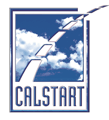CARB Chair-at CALSTART Summit-Now Suggesting That 100% ZEV Sales Target in 2030 Could be Reality
By John Boesel, President & CEO, CALSTART
At this difficult time in global history, it’s important we base decisions on science, #publichealth & technology. We can’t look into the rear view mirror to set outdated emission standards that are doomed to fail. pic.twitter.com/Pl8obrkmq0
— Mary Nichols (@MaryNicholsCA) April 1, 2020
Earlier this week, when the Trump administration announced its long-planned rollback of federal fuel economy and car pollution standards, I noted that this move would accomplish little more than sowing uncertainty for an industry that values predictability. While the federal government seems to be looking backward with this week’s framework announcement, at last week’s annual CALSTART California 2030 Policy Summit, which we held online, we had a chance to look to the future. To kick-off the event, California Air Resources Board (CARB) Chairman Mary Nichols made some important statements.
At our Summit, Nichols noted that while she had seen the scientific need, she had been reluctant to join in with others calling for any type of ban on internal combustion engine vehicles. She indicated that she’d been concerned about some backlash from such a plan. However, last week the Chairman shared that her thinking has evolved in light of the need for very dramatic emissions reductions to meet our air quality and climate goals; the rapid pace of technological innovation by both startups and longtime industry leaders; and California’s tradition of achieving ambitious goals by aiming high and supporting targets with sound policy. Said Nichols, “I’ve become convinced of the need to send a longer-term signal of where we’re heading…If we can make it clear that it is the will of the legislature and [CARB], then there should be a clear end to [internal combustion engine] sales.” She went on to say that a 100% zero emission vehicle (ZEV) sales target should now be seriously considered in California.
As CARB takes up discussions on post-2025 standards as part of its Advanced Clean Cars Program (which includes the “ZEV Mandate”), CALSTART believes it is time to set our sights higher. Battery technology has improved immensely over the last decade. If the automakers hold to their plans, by the end of 2023 there should be a much broader array of long-range electric and fuel cell vehicles available for sale. If the state can maintain a sufficient level of investment for vehicle purchase incentives and build-out of infrastructure (recharging network), the proposed 2030 goal could be achieved. It’s worth noting that another group, Energy Innovations, issued a recent report suggesting California needed to establish an 80% ZEV sales target by 2030 if it were to meet its 2030 greenhouse gas reduction target.
From electric cars to trucks and buses, California is the leading electric vehicle manufacturing state. No other state produces more electric vehicles and has more electric vehicle related jobs. We support the Chairman’s call for strong consideration of the 100% ZEV sales target by 2030, and look forward to working with our member companies to turn it into a reality.
